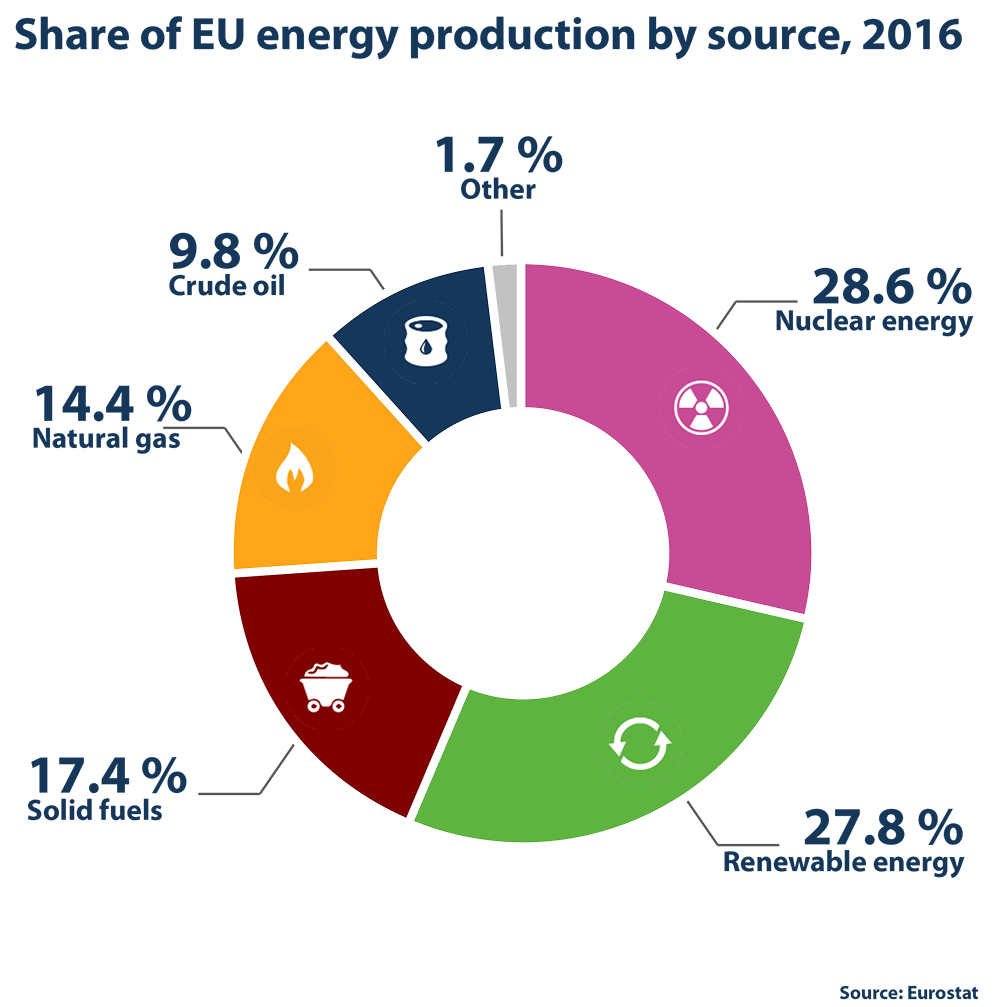2.2 What do we produce in the EU?
The production of energy in the EU is spread across a range of different energy sources: solid fuels (largely coal), natural gas, crude oil, nuclear energy and renewable energy (such as hydro, wind and solar energy).
Nuclear energy (29 % of total EU energy production) was the largest contributing source to energy production in the EU in 2016. Renewable energy (28 %) was the second largest source, followed by solid fuels (17 %), natural gas (14 %) and crude oil (10 %).
However, the production of energy is very different from one Member State to another. The significance of nuclear energy is particularly high in France (80 % of total national energy production), Belgium (75 %) and Slovakia (62 %). Renewable energy is the main source of energy produced in a number of Member States, with over 90 % (of the energy produced within the country) in Malta, Latvia, Portugal, Cyprus and Lithuania. Solid fuels have the highest importance in Poland (78 %), Estonia (67 %), Greece and Czechia (both 59 %), while natural gas is the main source of energy produced in the Netherlands (83 %). Crude oil is the major source of energy produced in Denmark (47 %) and the United Kingdom (41 %).
